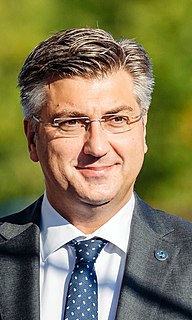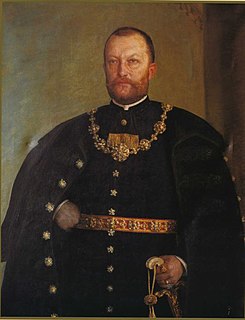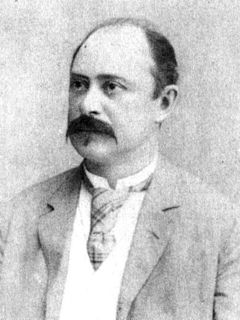The politics of Croatia are defined by a parliamentary, representative democratic republic framework, where the Prime Minister of Croatia is the head of government in a multi-party system. Executive power is exercised by the Government and the President of Croatia. Legislative power is vested in the Croatian Parliament. The Judiciary is independent of the executive and the legislature. The parliament adopted the current Constitution of Croatia on 22 December 1990 and decided to declare independence from Yugoslavia on 25 May 1991. The Constitutional Decision on the Sovereignty and Independence of the Republic of Croatia came into effect on 8 October 1991. The constitution has since been amended several times. The first modern parties in the country developed in the middle of the 19th century, and their agenda and appeal changed, reflecting major social changes, such as the breakup of Austria-Hungary, the Kingdom of Serbs, Croats and Slovenes, dictatorship and social upheavals in the kingdom, World War II, the establishment of Communist rule and the breakup of the SFR Yugoslavia.

The Prime Minister of Croatia, officially the President of the Government of the Republic of Croatia, is Croatia's head of government, and is de facto the most powerful and influential state officeholder in the Croatian system of government. Following the first-time establishment of the office in 1945, the 1990-2001 semi-presidential period is the only exception where the President of Croatia held de facto authority. In the formal Croatian order of precedence, however, the position of prime minister is the third highest state office, after the President of the Republic and the Speaker of the Parliament.

The Croatian Parliament or the Sabor is the unicameral representative body of the citizens of the Republic of Croatia; it is Croatia's legislature. Under the terms of the Croatian Constitution, the Sabor represents the people and is vested with legislative power. The Sabor is composed of 151 members elected to a four-year term on the basis of direct, universal and equal suffrage by secret ballot. Seats are allocated according to the Croatian Parliament electoral districts: 140 members of the parliament are elected in multi-seat constituencies, 8 from the minorities and 3 from the Croatian diaspora. The Sabor is presided over by a Speaker, who is assisted by at least one deputy speaker.

The Croatian Democratic Union is a conservative political party and the main centre-right political party in Croatia. It is one of the two major contemporary political parties in Croatia, along with the centre-left Social Democratic Party (SDP). It is currently the largest party in the Sabor with 55 seats. The HDZ ruled Croatia from 1990 after the country gained independence from Yugoslavia until 2000 and, in coalition with junior partners, from 2003 to 2011, and since 2016. The party is a member of the European People's Party (EPP). HDZ's leader, Andrej Plenković, is the current Prime Minister of Croatia, having taken office following the 2016 Parliamentary Election.

The Croatian Peasant Party is a centrist political party in Croatia founded on December 22, 1904 by Antun and Stjepan Radić as Croatian Peoples' Peasant Party (HPSS). Brothers Radić considered that the realization of Croatian statehood was possible within Austria-Hungary, but that it had to be reformed into a Monarchy divided into three equal parts – Austria, Hungary, Croatia. After the creation of Kingdom of Yugoslavia in 1918, Party requested for the Croatian part of the Kingdom to be based on self-determination. This brought them great public support which columned in 1920 parliamentary election when HPSS won all 58 seats assigned to Croatia.

Count Károly Khuen-Héderváry de Hédervár, born as Károly Khuen de Belás, was a Hungarian politician; Ban of the Kingdom of Croatia-Slavonia in the late nineteenth century. He succeeded the temporary reign of Ban Hermann Ramberg in 1883. Khuen's reign was marked by a strong magyarization. After a series of riots broke out against him in 1903, Khuen was relieved of his duty and appointed prime minister of Hungary.

The Kingdom of Dalmatia was a crown land of the Austrian Empire (1815–1867) and the Cisleithanian half of Austria-Hungary (1867–1918). It encompassed the entirety of the region of Dalmatia, with its capital at Zadar.
The Prime Minister of Yugoslavia was the head of government of the Yugoslav state, from the creation of the Kingdom of Serbs, Croats and Slovenes in 1918 until the breakup of the Socialist Federal Republic of Yugoslavia in 1992.

Parliamentary elections were held in Croatia on 25 November 2007 and for overseas voters on 24 and 25 November. The campaign officially started on 3 November. The President of Croatia announced elections on 17 October and 14 days were allowed for candidate lists to be submitted.

In mid-October 1895, Austro-Hungarian Emperor Franz Joseph visited Zagreb, at the time the capital of the Kingdom of Croatia-Slavonia, in order to attend the opening of the Croatian National Theatre. A group of Croatian students used the visit to protest the rule of the Hungarian Károly Khuen-Héderváry as Croatian ban. They were led by Stjepan Radić, who would later form the influential Croatian People's Peasant Party.

Parliamentary elections were held in Croatia on Sunday, 4 December 2011 to elect 151 members to the Croatian Parliament. They were the sixth parliamentary election in Croatia since independence.
The Party of Rights was an influential Croatian political party in the 19th and 20th centuries. The right or rights in the party's name refer to the idea of Croatian national and ethnic rights, which was central to the party's ideology. Numerous modern Croatian and Bosnian Croat political parties claim lineage from it.

Parliamentary elections were held in Croatia on 8 November 2015. All 151 seats in the Parliament were up for election. This parliamentary election was the 8th since the first multi-party election in 1990 and the first since Croatia joined the European Union in 2013. The ruling center-left Croatia is Growing coalition, led by Prime Minister Zoran Milanović, was challenged by the center-right Patriotic Coalition led by the HDZ and headed by its party chairman Tomislav Karamarko, and also faced several new political coalitions.
The Demands of the Nation is the name of a political petition that was adopted on March 25, 1848 in Kingdom of Croatia. In its 30 points it contains principles and programs of the Croatian citizens, as well as national, state, legal, social and liberal seeks to change Croatian position within the Austrian Empire, and to change the state structure and social issues within Croatia.

The Triune Kingdom, Croatia under Bans rule or Kingdom of Croatia, officially the Triune Kingdom of Croatia, Slavonia and Dalmatia was a constituent Kingdom of the Austrian Empire with high levels self-governing and sovereignty. It lasted from 1848 with the proclamation of the Sabor and enthronement of Ban Josip Count Jelačić Bužimski under whom all Crown Lands were later united and governed by the Ban of Croatia. During that period the Triune Kingdom of Croatia has broken the crown union with Hungary which was established during the 18th century, and went to war with Hungary. During this period the first modern Government was established. After the defeat of revolutionary Hungary in 1849 the age of Bach's absolutism came to being, which unlike other parts of the Austrian Monarchy wasn't implemented to the fullest in the Triune Kingdom of Croatia. The 1860's were marked by the reign of Ban Josip Barun Šokčević who had the task to negotiate the future agreements within the Monarchy. After the Austro-Hungarian Compromise of 1867 in protest of not negotiating with the Triune Kingdom of Croatia the Official Government and Sabor declined to send a delegation for the coronation of Franz Joseph I in Budapest and nulified the coronation in the Royal Diet session. In 1867 under political pressure Ban Šokčević resigned and was succeeded by Ban Levin Barun Rauch who as a magyaron was more in favor of negotiating Croatia's position within Hungary, rather then with Austria, which would result in the Croatian–Hungarian Settlement of 1868 and crown union of the Triune Kingdom of Croatia, Slavonia and Dalmatia and the Kingdom Hungary which as partner states formed the Lands of the Crown of Saint Stephen.

















